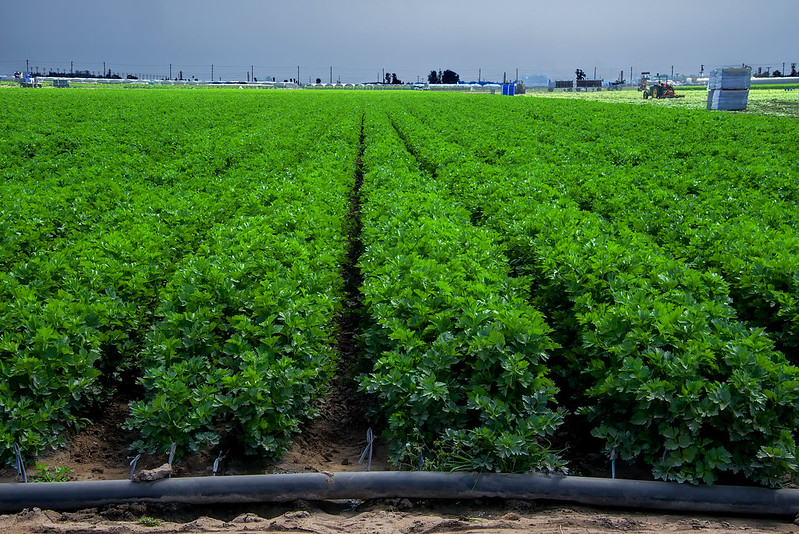Proposed Legislation Would Make Groundwater Adjudications More Fair
Guest Contributors Adrianne Davies, Owen McAleer, and Gabi Rosenfeld explain AB 779, a bill they worked on with State Assemblymember Lori Wilson.

By Adrianne Davies, Owen McAleer, and Gabi Rosenfeld
California’s groundwater adjudication process is complex and inaccessible for many water users. As students in UCLA Law’s California Environmental Legislation and Policy Clinic, we partnered with State Assemblymember Lori Wilson’s office to find ways to improve this process. This project resulted in the introduction of AB 779, which will be heard this week by the Assembly Water, Parks and Wildlife Committee.
Groundwater use is a topic of dire importance in California. Years of severe drought have depleted surface water supplies and forced farmers to rely on limited supplies of groundwater to meet their demand for water. In 2014, California enacted the Sustainable Groundwater Management Act (SGMA), which aims to protect groundwater resources by requiring groundwater sustainable agencies (GSAs) to formulate plans to sustainably manage groundwater resources within their basin. California has made substantial progress on groundwater sustainability since then, but SGMA does not impact groundwater rights. Thus, a GSA may direct a water user to pump less water than they have a right to or include other provisions that a water user may object to. When there is a dispute over a legal right to water, a water user can seek a judgment from the court. This ruling is an adjudication.
The groundwater adjudication process, which is governed by SB 226 and AB 1390 (2015), determines how groundwater rights in a basin are allocated. The adjudication process is often expensive and lengthy, and it can present significant barriers for water users. Adjudication proceedings can take upwards of ten years and often involve legal fees in the millions of dollars. For instance, an adjudication in the Antelope Valley Groundwater Basin lasted over 15 years, involved 75,000 parties and 9,000 docket entries, and employed over a hundred lawyers. In some adjudicated basins, small farmers have been forced to sell their operations because of the financial strain of the process.
And courts face hurdles when seeking unbiased technical expertise from the Department of Water Resources (DWR) or State Water Resources Control Board. Those agencies can provide valuable information and help fill gaps caused when under-resourced parties are unable to participate in an adjudication. But the agencies cannot participate in the current adjudication process unless a court provides a formal reference or makes them parties to the case. This formal procedure can be a strain on limited agency resources and makes it extremely cumbersome for expert agencies to provide technical input and ensure that final judgments align with the goals of SGMA.
Together, these issues make it difficult for the needs of water users, especially small farmers, farmers of color, and other historically marginalized groundwater users, to be adequately represented in adjudication proceedings.
AB 779 seeks to address these challenges by modifying the adjudication process in the following ways:
- First, the bill would require parties in adjudications to forward pleading and briefing materials to the Department of Water Resources (DWR). DWR would then be required to publish the materials on a publicly available website. GSAs would also be required to hold public meetings explaining the adjudication process to community members and groundwater users in their basin.
- Second, the bill would require courts to invite an expert representative from DWR or the State Water Resources Control Board to provide technical assistance or testimony during adjudication proceedings. Groundwater management is technical and complex, and objective government experts can provide science-based information regarding sustainable management.
- Finally, the bill would require GSAs and parties to report monitoring data to the adjudicating court to prevent over-pumping during the proceeding.
Informing the public about adjudication proceedings; clearing a path for expert agencies to provide objective, science-based testimony; and ensuring groundwater is sustainably managed while rights are adjudicated would level the playing field for all groundwater users, particularly small farmers and farmers of color, and would align the adjudication process more closely with the goals of SGMA. While this week’s hearing is just the start of AB 779’s journey through the Legislature, we are hopeful this journey will end in a law that makes the adjudication process more transparent and fair for all.
Guest contributors Adrianne Davies, Owen McAleer, and Gabi Rosenfeld are UCLA Law students (2L).





Reader Comments